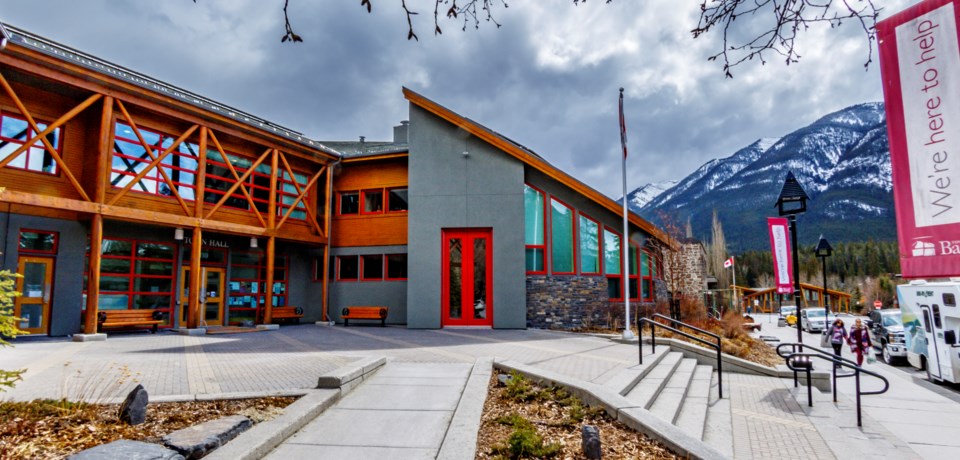BANFF – Proposed changes to a relatively new bylaw aim to provide greater clarity on when a person filing complaints against Banff’s elected officials can keep their identity secret from council or have their name released.
The issue surrounding confidentiality rules in the council code of conduct bylaw came up last year when a conflict of interest allegation was levelled against former town councillor Peter Poole. He was not initially told who filed the complaint, which was ultimately dismissed by unanimous vote of council.
Town of Banff officials say a question at the time centred on whether the Town of Banff had authority to release the name of the complainant, regardless of whether a councillor or councillors wanted the name of the complainant made public.
They say the proposed solution under proposed amendments to the code of conduct bylaw would have a complainant submit a form directly to an independent investigator, with a section that identifies if the complainant’s identity could be disclosed to the councillor or reasons they want to retain confidentiality.
“The independent investigator would assess the reasons given by the complainant and FOIP regulations to determine if the name of the complainant can be released, in confidence, to the respondent member of council,” said Jason Darrah, the director of communications for the Town of Banff.
“It is important to note that the intent of the form and process proposed to council would be to maintain the privacy of the complaint and the name of the complainant from public disclosure, at all.”
Darrah said the complaint would be kept confidential until council decides otherwise, likely at the conclusion of an investigation or at another stage, as the individual case requires.
“The form is intended to allow the complainant to make a case for having their name kept private from the respondent member of council or all council members, or to allow their name to be made known to the respondent and council,” he said. “But the intent is to keep the complaint and investigation private until deemed appropriate to release publicly, if council and their independent advisor decides it is appropriate to release publicly.”
The current council code of conduct bylaw provides council with three options on how to investigate a formal complaint – the full council may deal with the complaint, a panel of up to three members of council not implicated in the complaint may be appointed, or a third-party investigator can be brought in.
However, on March 28, the governance and finance committee recommended council approve changes to the bylaw, including elimination of council acting as the investigator and recommending that all complaints be filed with an independent investigator and not the director of corporate services.
The governance and finance committee, which is made up entirely of council, also directed administration to begin a request-for-proposal process to contract an individual or company, experienced in mediation and complaint adjudication, to carry out the duties of a third-party investigator.
Under the existing process, if a complaint includes one or more members of council who are alleged to have breached the code of conduct bylaw, the councillors shall receive a copy of the allegation.
The existing bylaw indicates that the director of corporate services may withhold the name of the person who submitted the complaint should they deem that it could be “reasonably expected to threaten the safety or mental or physical health of the individual or interfere with public safety.”
To ensure the intent of this section is maintained in the updated bylaw, administration has suggested additional clarity by way of including a new formal complaint form, which will be directed to a third-party investigator.
Libbey McDougall, the municipal clerk for the Town of Banff, said this will provide additional information to make a better informed decision on when to withhold the name of a complainant and when not to.
“This form would include a section requesting the complainant provide rationale for maintaining confidentiality of the complaint,” said McDougall in her March 28 report to the governance and finance committee meeting.
The need for greater clarity on confidentiality rules came up after a formal conflict of interest complaint levelled against Poole in July 2021 over his involvement in discussions on redevelopment plans for the train station lands and proposed aerial gondola from the townsite to Mount Norquay.
Poole, who owns a nearby hotel on the lower slopes of Mount Norquay, was not initially informed who was filing a complaint against him. The complaint against Poole was ultimately thrown out in its entirety by council because there were "insufficient grounds for this matter to be investigated.”
The director of corporate services made a decision against publicly releasing the name of the complainant based on grounds outlined in the bylaw, but Jan Waterous revealed it was her husband Adam Waterous during a public council meeting last summer.




